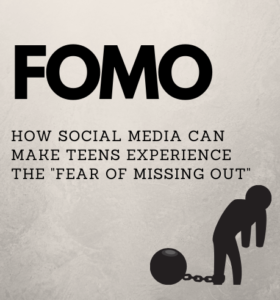
Beginning
The phenomena known as FOMO, or Fear of Missing Out, has grown rather common in the hyperconnected world of today. It talks about the worry brought on by the conviction that one is lacking from the fulfilling experiences others are having. Examining its roots, consequences, and possible coping mechanisms, this paper explores the complex interaction between FOMO and mental health.
Describe FOMO.
Definition and Sources of Origin
FOMO captures a complicated emotional condition rather than only a hip acronym. Originally coined in the early 2000s, the phrase became popular as social networking sites grew. Those who saw friends sharing about fun activities, trips, and get-togethers started to feel excluded. Constant barrage of well chosen highlights from others’ life might cause loneliness and inadequacy.
FOMO during Social Media’s Age
Social media sites as Facebook and Instagram magnify FOMO. Online sharing of images and tales sometimes presents an idealized picture of life. Users may feel anxious or urgent when they browse through their feeds, thinking they are passing up something vital or entertaining. This constant comparison can help to explain poor mental health.
The Psychological Effects of FOMO Anxiety and Depression
Studies show that mental health problems—especially anxiety and depression—have a significant relationship with FOMO. Constant fear of missing out can cause increased stress and overwhelm people. Since the person is caught in a loop of comparison and discontent, this worry might develop into depressed symptoms.
Low Self-Esteem:
FOMO can affect self-esteem greatly. People may start to feel inadequate when they measure their life to the apparently flawless life of others. A low self-image resulting from this sense of inadequacy can make social events or enjoyment of personal experiences challenging.
Social Seclusion
FOMO ironically can cause social isolation. Although people could be driven to go to every event to prevent missing out, the pressure can become intolerable. Some may so completely avoid social events, therefore aggravating their loneliness.
FOMO’s Neuroscience: A Study Guide
Dopamine’s Function
Examining the chemistry of the brain can help one to grasp how FOMO affects mental health. The expectation of a fulfilling event sets off dopamine, a chemical connected to pleasure and reward. People’s brain may signal discomfort when they feel they are deprived of fun activities.
Theory of Social Comparisons
Social Comparison Theory is yet another psychological model that clarifies FOMO. According to this view, people define their value in relation to others. In a society where social media rules, there are almost endless chances for these comparisons, which may have bad effects on mental health.

FOMO and Young People:
The Population at Risk
Particularly young adults—those between the ages of 18 and 30—are more prone to FOMO. Often at a stage of life where they are developing their identities and negotiating social interactions is this population. They are more susceptible to the negative consequences of FOMO since they feel great pressure to fit in and be part of social circles.
Effect on Educational Performance
Furthermore influencing academic performance is FOMO. Between concentrating on their studies and going to social gatherings, students could be conflicted. Procrastinating, less output, and finally lower academic performance can all result from this inner struggle.
Strategies for Coping FOMO
Acknowledge Your Emotions.
Realizing your emotions is the first step toward overcoming FOMO. Some of the pressure can be released if one realizes that missing out is natural and causes anxiety. Acknowledging that others might also suffer with FOMO helps to build community and common experience.
Use Social Media Only Moderately
One strong approach to fight FOMO is cutting time spent on social media. Think about scheduling particular times to check social media or using applications meant to cut screen usage. This method can enable a more balanced perspective on life and help to stop the cycle of continual comparison.
Practice mindfulness.
Mindfulness strategies including deep breathing and meditation help people become more present. Through here and now concentration, people can lower anxiety and value their present sensations. Mindfulness helps one to turn their attention from the actions of others to the events in their own life.
Participate in Relevant Activities
One of the best ways to lower FOMO is to focus energy toward worthwhile things. Pursuing a pastime, volunteering, or spending time with loved ones engaging in meaningful events can help people develop happiness and fulfillment regardless of what others are doing.
Creating an Encouraging Society
Open Notes
Encouragement of honest FOMO communication in social circles helps to build a positive atmosphere. By means of shared experiences and emotions, one can help to normalize them and create chances for mutual encouragement.
Promote integrity.
Encouragement of honesty in social contacts can help to lessen the need to offer a perfect picture of living. Deeper relationships and a more encouraging environment can result from friends and relatives sharing their challenges and weaknesses.
In summary
Particularly in the digital era of today, FOMO is a multifarious phenomenon that profoundly influences mental health. Understanding its roots and repercussions helps people create good coping mechanisms to lessen its consequences. In the end, encouraging honesty and community will assist to counteract FOMO’s pressures and hence promote mental health. Giving our mental health and well-being first priority becomes critical as we negotiate a world growingly linked. compassionate that everyone has FOMO moments can help to create a society more sympathetic and compassionate.